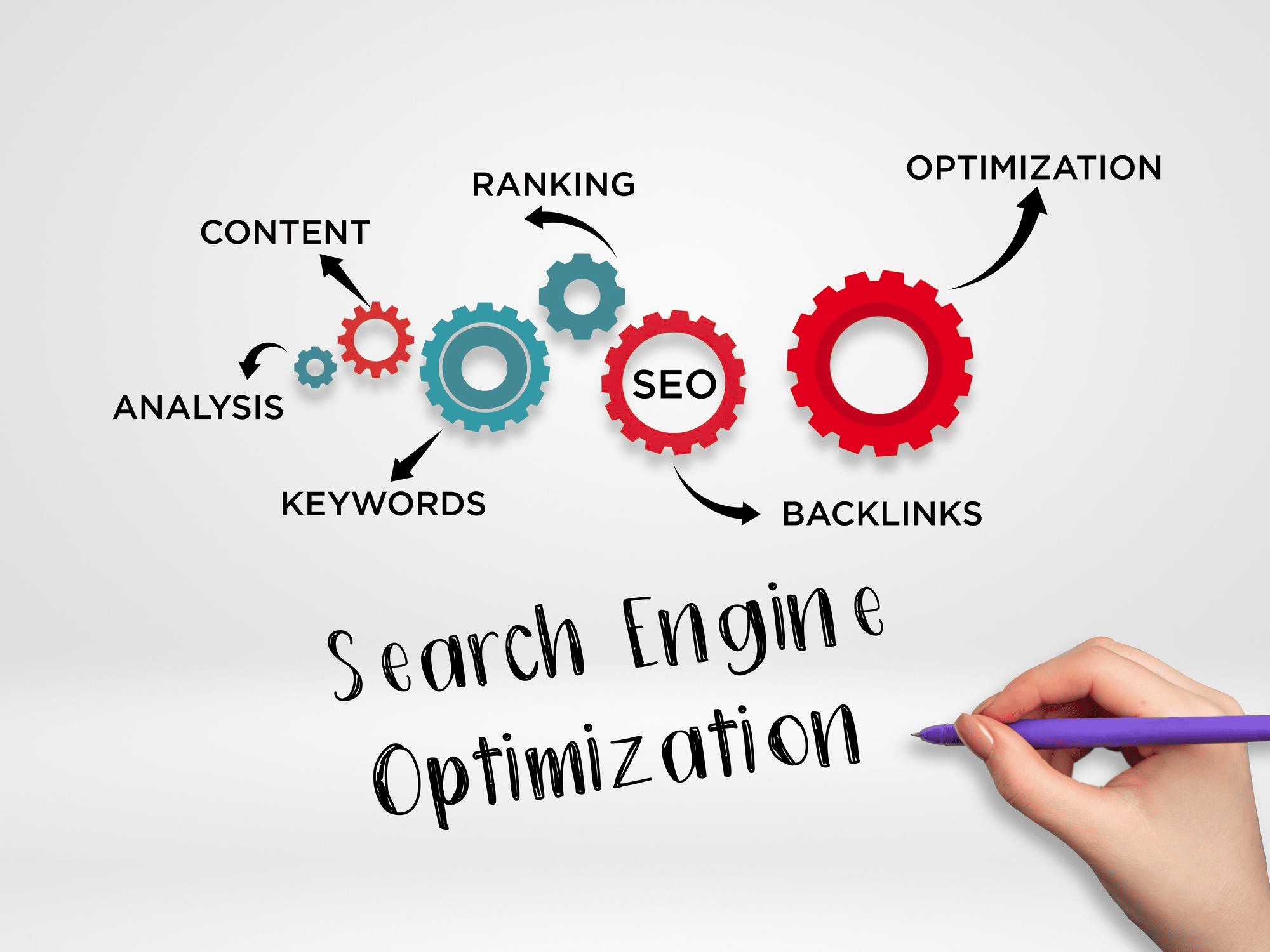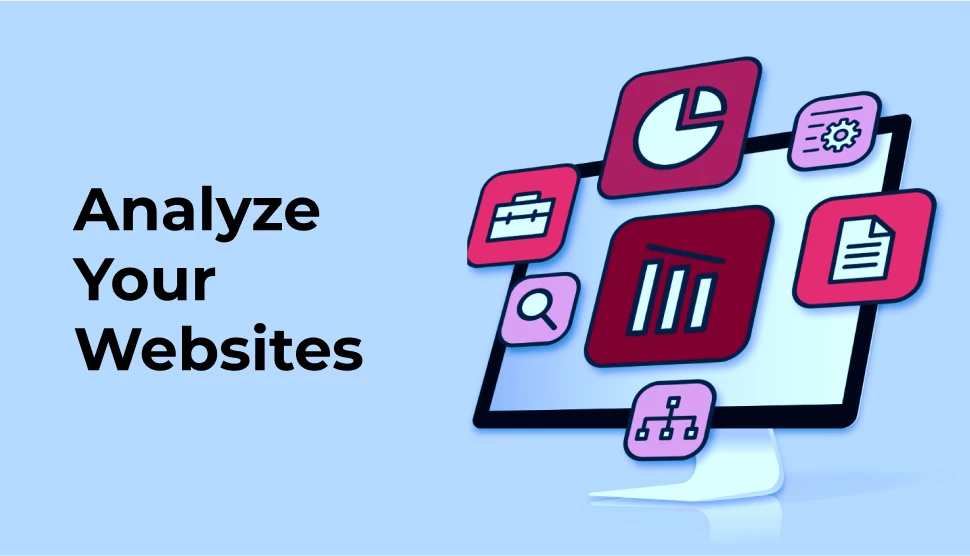What Is Website Analysis? How To Analyse Your Website In 5 Simple Steps
6 mins | Apr 08, 2024

Websites are an essential part of any business today! Who doesn't want to build a solid online presence for their brand and reach a wider audience to boost their sales & promote brand awareness? Of course, every organization out there!
A good website represents a brand on the digital platform and is one of how the audience can engage with the brand. If you are someone who wants to enhance audience engagement with your website & brand, you need to learn how to perform a website analysis effectively!
Conducting website analysis will help you to understand the expectations of your audience, user behavior, and many more things so that you can provide the relevant information or experience to them once they visit your website! In this article, we have explained the meaning of website analysis, its importance, how you can perform a website analysis, and much more!
What Is Meant By Website Analysis?
Website analysis can be defined as the process of reviewing or examining the important aspects of the website to make sure it smoothly performs the expected tasks. There might be some tasks or duties that you expect your website to achieve with flying colors, and it might vary depending on the type of industry. For instance, a retail business might expect its website to work as an e-commerce website where people can purchase their required products.
Here Are Some Of The Common Elements That You Must Review While Performing A Website Analysis:
A) User experience: This can be analyzed by doing online surveys or collecting customer feedback. It typically helps in measuring the efficiency of your website.
B) Speed: This means how fast the web pages of your website can load on any device used by the user! Generally, website owners aim to offer quick loading speeds.
C) SEO (Search Engine Optimization): SEO helps in discovering how your content or website is ranked in the SERPs when users, customers, or your target audience search using relevant keywords.
D) Website Traffic: This one helps you to determine how your brand’s website can manage user traffic and specific links that users tend to click often when they visit the website.
E) Analysis Of Your Competitors: This particular metric can be analyzed while performing the website analysis, as it displays how your website compares to your competitor’s website in relation to user experience, design, content, etc.
F) User Behaviour Analytics: This means how individuals browse your website and the path they select to navigate.
What Is The Importance Of Website Analysis?
Website analysis gives you valuable insights about its performance as well as used experience! A routine analysis of your website can help you to recognize the areas of your website that require certain modifications or updates, optimize the website in order to attract new customers/visitors & keep them coming back again & again!
Website analysis also ensures that you offer the best-ever experience for your website visitors or customers & offer value to them! You need to make sure that you are staying competitive enough by also analyzing the websites of your competitors & identifying new keywords and content possibilities.
In order to stay relevant and engaging for your prospects or customers, there’s a need for a constant evolution of your website. Regular analysis of your website is crucial as it makes sure that your brand’s online presence is able to fulfill the key metrics while continuing with the development of your website’s content so that visitors can find value and even share it with others!
Here Are A Few Reasons For Analyzing A Website:
a) Well-Defined Audience — Analyzing your brand’s website will help you to learn & understand deeply about your customers & target audience who access your website on a regular basis! Defining your audience is essential so that you can target those individuals in your marketing campaigns and give an introduction to your brand to more potential consumers.
At the time of the website analysis process, you must identify your target market, and specify how victorious your website is at drawing in the right audience. You will also be able to utilize the website analytics to find out the demographics like location, age, or purchasing habits of your customers. Once you gain a deep understanding of the customers visiting your website, you can make certain improvements in your content & website according to your audience.
b) Enhanced Content — Website analysis has the potential to help you know the different ways through which you can attract customers. It also enables you to understand whether the content or your products are being appreciated or of any value among your target audience.
For example, traffic and behavior analytics can be utilized here in order to determine how much time your users are spending on a specific webpage and whether they are clicking on the links embedded in the content or not!
c) Better Traffic — If you are able to improve the basic functionality of your website along with SEO (search engine optimization) practices, you will be in a position to boost the traffic on your website and, ultimately, increase your overall sales! Also, if you continue to attract new users to visit and access your website smoothly, you are more likely to witness conversions.
Making the SEO practices better will help you boost the number of individuals who can discover your brand’s website & become your customers! Once the number of people who are accessing your website has increased, it generally becomes important to improve the utility as well as the speed of your website.
Important Steps To Analyse Your Website
We have mentioned a few steps that you can follow to analyze your website in an effective manner!
1. Define Your Website’s Purpose
The first step you must take to analyze your website effectively is to have a clear conversation with the decision-makers to determine your website's goal. To achieve this, you must consider understanding your target market for the products/services you offer! Determining the goals & objectives along with the target audience will provide you assistance to make the user experience & website content on point.
2. Make A To-Do-List Of The Elements That Have To Be Analysed
You need to create a list that includes all the elements that you want to analyze throughout the process! Eventually, create a sheet that can be used for writing down comments or any important suggestions. Speed and user experience rank among the primary factors scrutinized by businesses, though additional elements might be included on the basis of the target audience and objectives. It's essential to conduct a comprehensive analysis of each aspect to maintain consistency and offer an insightful evaluation of both successful aspects and critical areas that demand further enhancement.
3. Study The Websites Of Your Competitors
Next, focus on creating a list of your competitor's websites and Analyse them one by one! You should utilize the website elements checklist you designed for your own site and apply the same analysis to competitor websites in your industry. Examining the strategies that are used by you to enhance efficiency can provide insights into how you can enhance your own website.
4. Choose A Website Analysis Tool
It's important to find the right website analysis tool that aligns perfectly with your requirements as well as your budget. But there are a lot of options available, and some of them are free, while others are paid! These website analysis tools come with unique features that make them different from one another.
5. Finally, Analyse Your Website
This is the most important step of all because it's time to analyze your website critically! You can make a note of any broken links, structural inconsistencies in your website, and defined elements like page loading speed and user interaction. Try to keep a detailed record of your ability to complete common user tasks, including the number of steps required and any variations in ease compared to other websites.
6. Develop A Final Report
Once the process of website analysis is completed, start creating a final report that includes every single detail and how successful the website has been in achieving the expected goals! This report can encompass important recommendations to improve the website and methods that can be employed to cater to the target audience and reach more people. When writing down recommendations, you can include comprehensive explanations of the implementation procedure for modification in the future.
Wrapping It Up!
Understanding the importance and mastering website analysis is crucial for all businesses or individuals who are striving to thrive & achieve success online! Keep in mind that the process of website analysis is never-ending, which means that you must do it on a regular basis! However, this will require vigilance and adaptation to stay in the digital world. With diligence and strategic adjustments, one can harness the power of website analysis to achieve lasting success online.
Key Takeaways
- Mastering the art of website analysis helps you to enhance the user experience, boosts SEO effectiveness, and guides strategic improvements for optimal online performance.
- Website analysis fuels informed decision-making, leading to targeted marketing strategies and increased conversions.
- Comprehensive website analysis drives continuous optimization, ensuring alignment with evolving user needs and industry trends.
- Practical website analysis facilitates data-driven insights, enabling precise adjustments to content, design, and functionality.
- Website analysis uncovers valuable metrics such as bounce rate, session duration, and conversion rates, guiding performance enhancement.
- In-depth website analysis reveals insights into traffic sources, allowing businesses to optimize marketing efforts and maximize ROI.
- Continuous website analysis aids in benchmarking performance against competitors, and identifying areas for necessary modifications.
- Using website analysis tools and techniques, you can streamline the process of tracking performance metrics and interpreting data effectively.
Author










